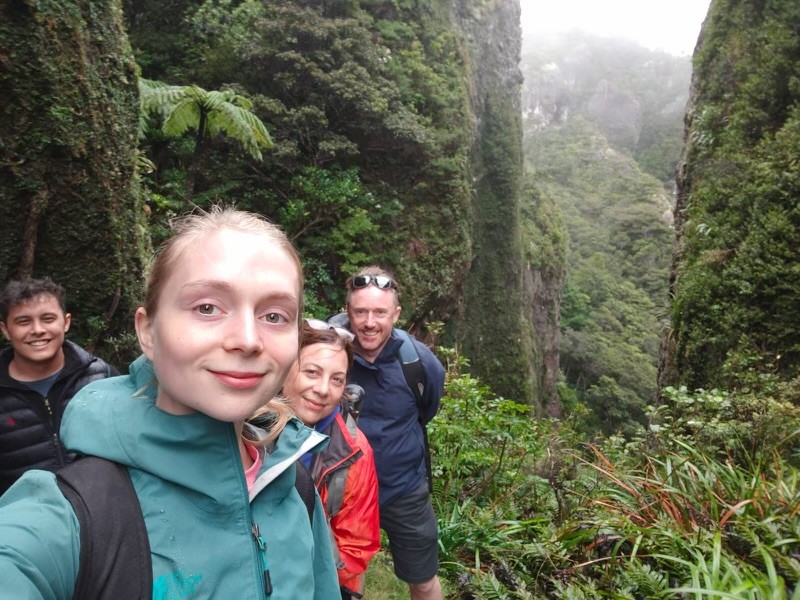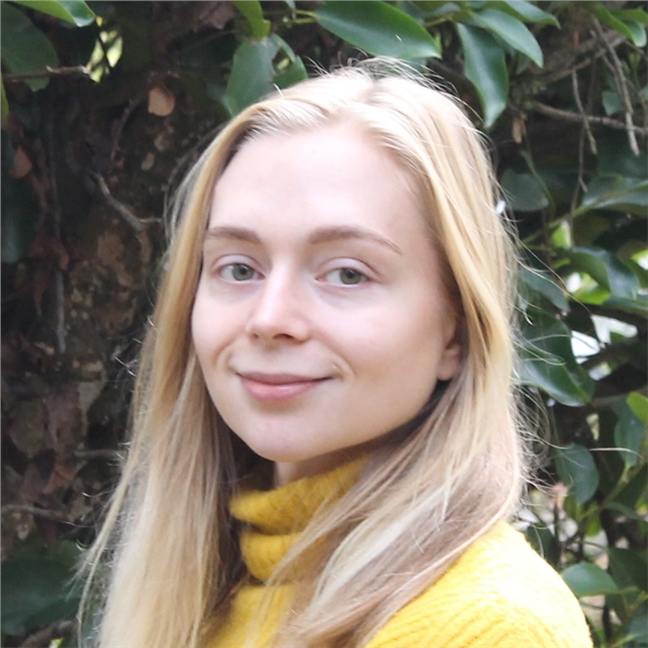29 November 2022

Research team scoping Great Barrier Island. From left, Maui Duley, Alexa Byers, Prof. Amanda Black, and Dr. Nick Waipara
Soil microbes are central to life on Earth. They recycle nutrients, regulate water quality, support plant productivity, and sequester carbon. However, the microbes in soil change in response to disturbances, affecting the way they behave and in turn the many systems that rely on them.
Alexa Byers, a postdoctoral researcher at Bioprotection Aotearoa, is investigating the soil health of natural and productive ecosystems to understand the response of soil microbes to threats such as pathogen invasion, human disturbance and climate change.
Alexa is involved in two projects at Bioprotection Aotearoa. The first project on kauri dieback disease (Phytophthora agathidicida) involves screening kauri forest soils for the production of bio-active compounds that have the potential to suppress kauri dieback. This project has involved a large amount of fieldwork on the North Island, including trips to the remote Great Barrier Island, Northland and Auckland.
The work is critical, in part, because kauri forests are so important to Māori communities. Alexa and her supervisor, Professor Amanda Black (Tuhoe, Whakatōhea, Te Whānau ā Apanui), have done a lot of engagement work with multiple iwi in Northland to explain the research and involve them.
Alexa says, “It’s important to just be open about what we’re doing, asking them questions about how we can help and listening to their contributions.”
This engagement has taken time. Alexa says, “Science sometimes moves at a fast pace and when you engage with communities you can’t rush things. You need to give people time to think. That has been a learning curve, that it’s not fair on them to be rushed.”
But Alexa says, “It is definitely worth it. You want your research to mean something more than just publishing papers. If you know you’re finding ways to benefit communities, that’s very rewarding.”
For the second project, Alexa is studying how land-use change is impacting soil microbial function and soil carbon cycling for project 3.1. She is taking soil from each land-use type and inducing drought to see how the microbes respond. The results will show how land-use change impacts microbes’ ability to cope with climate change. This project is focused on productive landscapes such as pasture in Banks Peninsula, Canterbury.
Alexa is enjoying meeting the different communities, working in beautiful parts of New Zealand, and interacting with other Early Career Researchers in Bioprotection Aotearoa. She says, “Bioprotection Aotearoa is really good because of their focus on early career scientists. There are lots of us and we have regular meetings and chances to get together and talk about our research. A lot of time is invested in us.”


